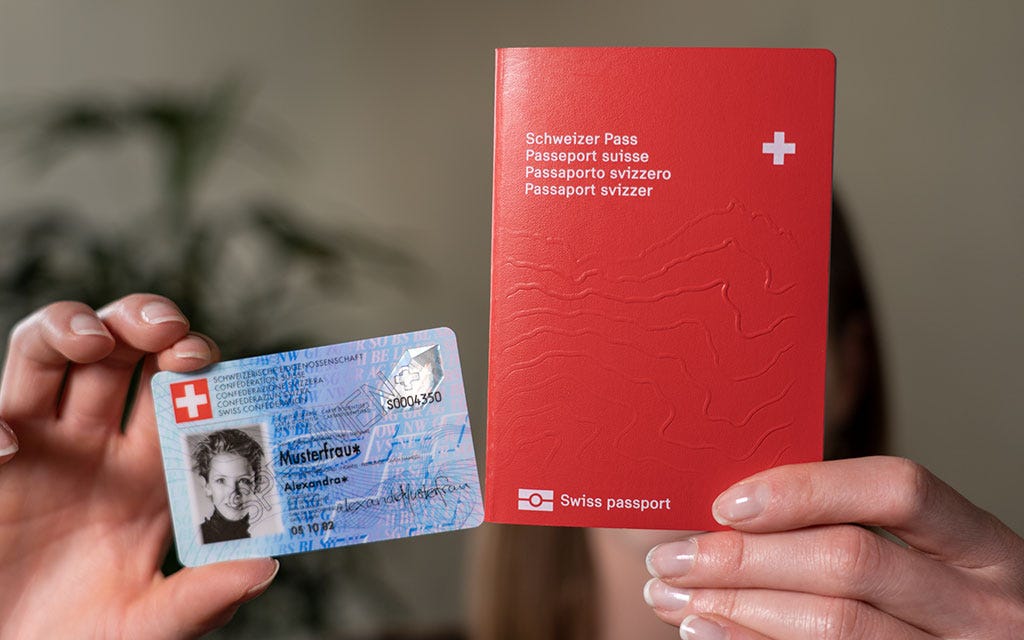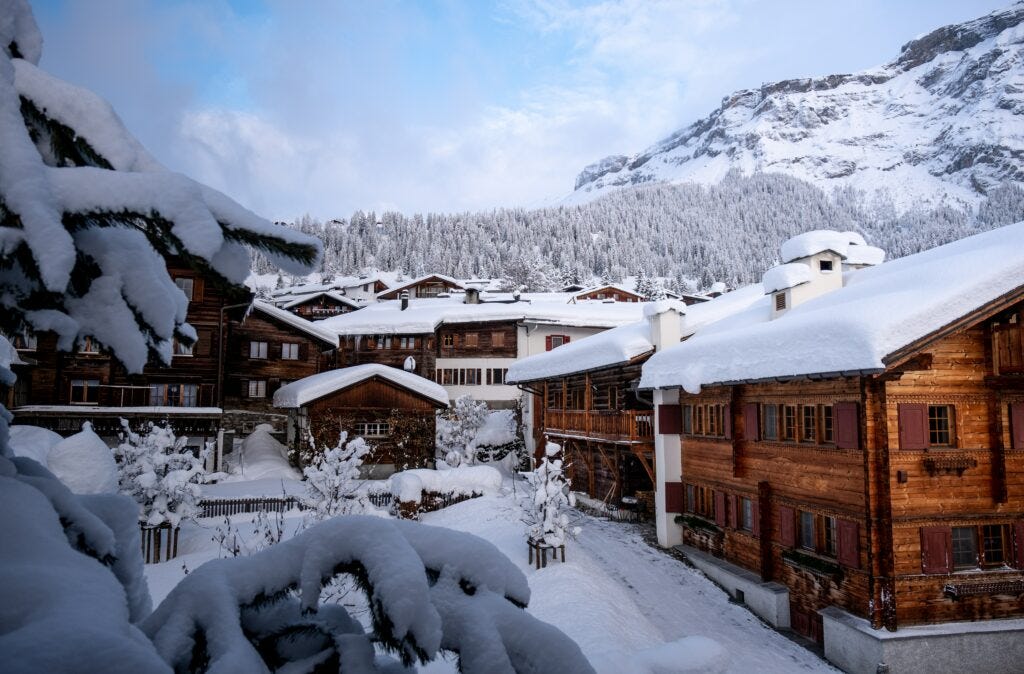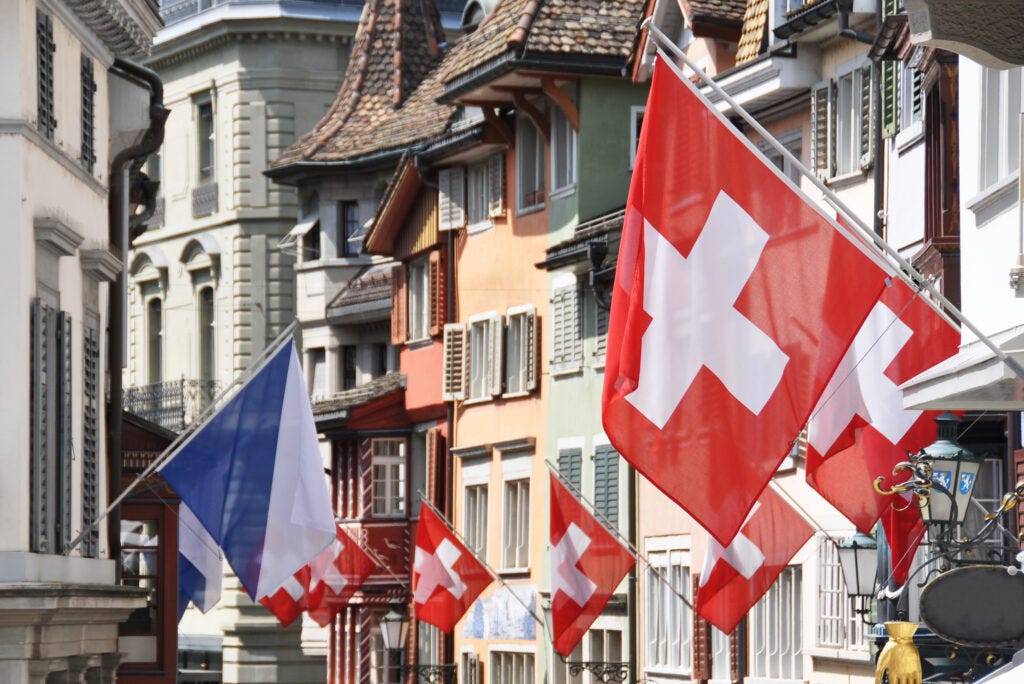Want to stay ahead of the rest? Read The Swiss Times
Switzerland is a country of expats, but not because they don’t want that coveted red passport. Becoming a citizen is famously challenging — something a voter referendum may soon change.
Switzerland is renowned for many things, including its high quality of life, stunning nature, and notoriously tricky naturalization process. Only six million of the 8.7 million people living in Switzerland are citizens. One reason that a quarter of Switzerland’s population doesn’t have a Swiss passport is that the hurdle of becoming a Swiss citizen is quite high.
But two Swiss political action groups have launched a new referendum designed to simplify the requirements for Swiss citizenship in the interest of democracy.
A fundamental right
Aktion Vierviertel and Operation Libero aim to promote democracy in Switzerland by enabling all residents of Switzerland to participate in political and social life as full members by acquiring citizenship. The referendum, set to be finalized any day, calls for abandoning “exclusionary policies” and streamlining the naturalization path. The core initiative proposes shortening the 10-year requirement for natural residency, which the committee says is “much too long.”
Simplifying the process would allow those who have lived in Switzerland for four years to have the right to naturalization, regardless of their residence status. Aktion Vierviertel’s manifesto states, “[W]e are convinced that it is the fundamental right of all people to be citizens of the country they permanently live in.”
They argue that the current naturalization process is “outdated,” overly complicated, and less than progressive. For example, children born in Switzerland are not automatically granted citizenship, a practice followed by other countries like Australia and the United States. Their stance has underscored the difficulty many long-time foreign nationals experience applying for citizenship.
“The Swiss naturalization system is one of the most restrictive in Europe,” explains ETH professor and historian Kijan Espahangizi. Proponents of the referendum contend that strict naturalization requirements also lead to a less diverse pool of voters which can “harm democracy.” Easing up on the regulations required to become a citizen would give more people the right to vote and participate in Swiss politics and decision-making.
The road to citizenship for foreign nationals
The referendum would mean radical changes in how citizen applications are processed on the local and cantonal levels. This leads to profoundly different application standards across Switzerland’s 26 cantons.
Currently, there are two paths to becoming a Swiss citizen: ordinary, based on residency, and simplified, a faster process for those who fall under criteria like being married to a Swiss citizen. For most foreign nationals in Switzerland, obtaining Swiss citizenship means having a residence permit for at least 10 years, attending language classes, acing your naturalization test, and passing integration interviews with the Gemeinde.
Further requirements according to the Federal Act on Swiss Citizenship include:
Live in a Swiss canton for at least 10 consecutive years (five years if you were a resident while under 18 years of age).
Hold a C residence permit.
Not claim Swiss welfare for 10 years before applying.
Have no criminal record.
Communicate in a national language, both orally and in writing.
Prove that you have the financial means to remain in Switzerland.
Show that you are integrated and familiar with Swiss culture.
In 2018, the road to citizenship became even more challenging when the updated Swiss Citizenship Act was passed. The law requires residents to have a C residence permit and demonstrate integration, including a written language test, before applying for naturalization.
Who decides?
However, meeting these requirements is only a prerequisite for applicants. The Swiss Migration Service decides on a case-by-case basis whether to grant citizenship. The application, which typically takes two years, must be approved on three levels: the federal, the cantonal, and the town municipal level. And depending on the canton, the cost of citizenship can range from 800 to 3,600 Swiss francs per applicant, making it unaffordable for some individuals and families.
In some municipalities, the local authorities decide who is granted citizenship, but in others, local citizens have the right to vote on who is granted citizenship. This means your neighbors can weigh in on whether or not you are granted citizenship. Canton Zurich, for instance, has 162 municipalities.
And the practice is more common than one might assume, especially in smaller municipalities. For example, in the well-known case of Gipf-Oberfrick, a longtime resident and passionate vegan, Nancy Holten, was denied a Swiss passport twice by members of her local community for campaigning against Swiss traditions like cowbells.
These and other cases have contributed to criticism of the Swiss naturalization process and prompted reformers to push for referendums to simplify the process. Naturally, some see this practice as a recipe for discrimination.
Zurich simplifies their process
Canton Zurich has been at the forefront of simplifying the path to citizenship. Last May, Zurich voters overwhelmingly approved a proposal to simplify the canton’s naturalization process. The proposal called for a streamlined process, including a standardized basic knowledge test. Previously, each Gemeinede, or town, created its own questions for applicants.
Now, the basic knowledge test in Zurich created by the canton is the same for everyone. This means the questions are uniform for all applicants regardless of which of the 162 municipalities you live within in canton Zurich. Roughly 25% of Zurich’s cantonal population are foreigners.
Why bother? The benefits of a Swiss passport
According to the World Happiness Report 2022, Switzerland is one of the happiest countries in the world and consistently ranks high or first on the lists of best places to live. It’s undoubtedly a great place to call home.
Despite the challenging road, the red passport comes with many perks, including being one of the most powerful passports in the world. Swiss citizens enjoy visa-free travel to 172 other nations, including all Schengen countries, and other benefits like Swiss bank accounts and outstanding health insurance.
Switzerland also allows dual nationality without restriction. Although, nationals of certain countries may lose their original nationality if the law of that country does not permit dual nationality. While the naturalization process has seen considerable changes in the last 20 years, whether the new referendum will help more people call the alpine nation home remains to be seen.
For more information on naturalization and Swiss citizenship, see:








